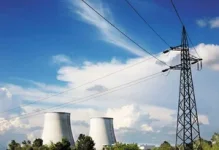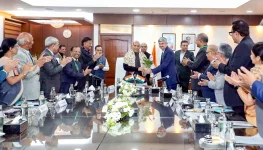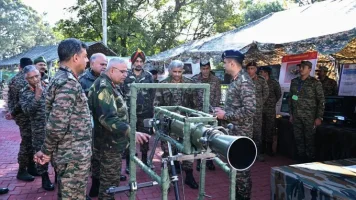- Views: 962
- Replies: 1
A recent PIB report highlights that since the start of the "Make in India" campaign, India's defence output has enhanced significantly. Defence exports increased to ~US$2.7 billion in FY2024–2025, a 9.5% increase from the previous year; highlighting the nation's efforts to fortify its defence infrastructure.
Compliance becomes crucial for maintaining transparency and supporting India’s growth as a global defence exporter. While the Government has been at the forefront of managing the defence ecosystem, gaps in infrastructure, compliance, and regulatory failures still prevail, which delay projects and impose a hurdle to growth.
Although Government-led initiatives such as iDEX (Innovations for Defence Excellence), the SPARK framework, and the recently launched ADITI (Advanced Defence Technology Innovation) scheme, which offers grants up to ~US$3 billion (INR 25 crore), are significantly accelerating this momentum. Additionally, establishment of dedicated defence industrial corridors in the Indian States of Uttar Pradesh and Tamil Nadu, along with more liberalised FDI norms and tax incentives, signal the Government’s commitment to nurturing a competitive domestic defence ecosystem.
A less discussed but vital aspect of this industry is insurance. Since defence manufacturing involves significant capital and high risks, specialized insurance solutions become essential. For defence startups, insurance is a necessary step in large procurement and co- development contracts.
Manufacturing defence-grade systems requires strict standards. Careful reviews are initiated on every component, including material quality, system redundancies, and secure electronics integration, all according to military specifications. Compliance with export control rules like SCOMET, strong cybersecurity measures, and strict data localization compliance are essential. Quality assurance in this field goes beyond just performance, focusing on long-term lifecycle responsibilities to maintain mission readiness over long periods.
The nature of the defence ecosystem requires industries, MSMEs, individuals, and startups to prioritize due diligence and ensure compliance as part of their operations. Being proactive rather than reactive will protect against the risk of compliance breaches. As part of this, examining internal governance structures, maintaining transparency, securing the supply chain, and ensuring compliance among foreign investors are not only crucial but also urgent.
Domestic and foreign entities manufacturing in India-
| Foreign Firm | Partner in India | Product/System |
|---|---|---|
| Airbus Defence | Tata Advanced Systems | C‑295 transport aircraft |
| Diehl Defence | Reliance Defence | Vulcano 155 mm PGMs |
| Rheinmetall | Reliance Defence | Ammunition, explosives, propellants |
| Saab | Carl‑Gustaf M4 rocket launchers | |
| Elbit Systems | Adani Defence & Aerospace | Armed UAVs (e.g., Drishti-10), Hermes‑900 airframes |
| Thales | Adani Defence & Aerospace | 70 mm rockets |
| Rosoboronexport | AWEIL / OFB | AK‑203 assault rifles |
| Boeing | Tata Advanced Systems | Apache & Chinook aero‑structures |
| Lockheed Martin | Tata Advanced Systems | C‑130J / F‑16 wings & subassemblies |
| Sig Sauer | Nibe Group | Sig 716 assault rifles |
Key elements of this process include:
- PEP and Sanctions screening: essential for ensuring that no direct or indirect association exists with conflicted individuals or entities subject to international restrictions.
- Adverse media checks: to identify early warning signs related to financial misconduct, criminal investigations, or reputation controversies involving promoters or management.
- ESG compliance: increasingly important as global partners demand transparency around environmental impact, fair labour practices, and governance standards.
- Cartelization or anti-competitive practice: critical to check given the concentrated nature of certain defence sub-sectors and the risks posed to contract integrity and fair pricing.




